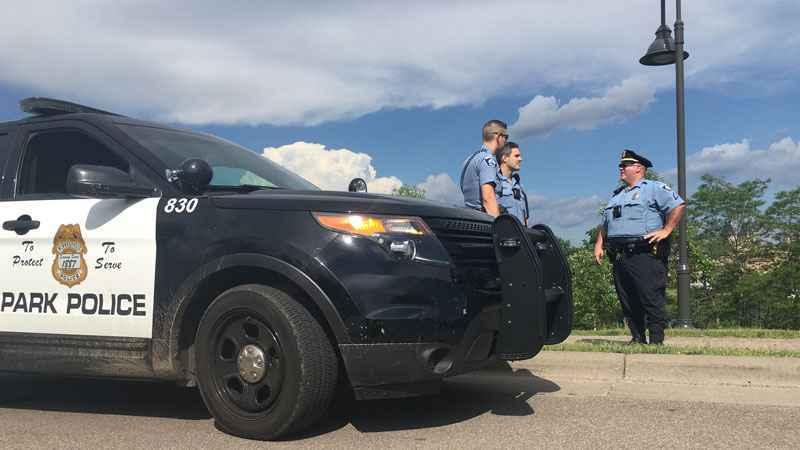Park Board in talks to mend relationship with Minneapolis Police Department
[anvplayer video=”5103610″ station=”998122″]
“We’re at capacity and we can’t add any more,” Shane Stenzel, who’s in charge of issuing permits for events held at Minneapolis parks, said at a recent Minneapolis Park and Recreation Board meeting.
The MPRB, alongside the Minneapolis Park Police Department, is at a fragile time as the city returns to a life once known before the pandemic. With major events back on the books for this summer, Minneapolis park officials say their police department doesn’t have enough officers or resources to handle the full lot.
“We have increasing crime across the park system, we have fewer Park Police resources than we had 20 years ago, and we are faced with the challenge of trying to provide safe public events at the park system,” Park Police Chief Jason Ohotto said to park commissioners in early April.
This need, and boost in events since the heart of the pandemic, has led to MPRB superintendent Alfred Bangoura asking the board to reconsider its current relationship with the Minneapolis Police Department. — one that has been whole since shortly after the murder of George Floyd.

(KSTP/file)
Nine days after George Floyd’s murder, the park board cut ties with MPD — specifically with their help at park events and assisting with MPD calls, citing the loss of community trust as its main reason.
Now, nearly two years later, in a letter to the board, Superintendent Bangoura states, in part: “The MPRB Park Police Department has limited capacity to provide special event security and cannot match pre-pandemic levels without supplemental assistance.”
Bangoura would like the board to repeal the resolution that ended their partnership with MPD to help with future events. The board’s Administration and Finance Committee will vote on the matter this Wednesday; if approved, it would move to a full board vote next.
“Our discussion will probably be robust, and there might be some feelings,” said Becka Thompson, first term park commissioner for Minneapolis’ 2nd District.
“I hope people recognize that we’re trying to do our best by everybody, like deeply,” Thompson added.
Thompson said she understands that some of the lost trust with MPD has not been restored and expects a meaningful conversation with her colleagues before voting.
“If we want to move forward in community, if we want to try to heal some of these wrongs, we need to stay in communication with each other for sure,” Thompson said. “But we also — how much are we going to lose before we start going forward?”
An MPD spokesman would not comment on the current discussions within the Park Board but said, “We look forward to learning more if the repeal comes to fruition.”
Enlisting help from the MPD is not the first move the Park Board has made to help with its security workload. It says the Minnesota State Patrol, Hennepin County Sheriff’s Office, Metro Transit Police Department and the University of Minnesota Police Department have all said they cannot help.
In a statement, the Minnesota State Patrol claims the following for not being able to provide assistance:
“The Minnesota State Patrol’s primary mission is to promote traffic safety through assistance, education and enforcement on Minnesota’s roadways. With our commitment to traffic safety and related activities such as the HEAT patrols, street racing patrols, Twin Cities Auto Show and Minnesota State Fair, we’re unable to allocate resources for this request.“
A representative with the Metro Transit Police Department sent the following statement:
“The Metro Transit Police Department is facing its own staffing challenges and doesn’t have the capacity to take on additional duties for other agencies. MTPD already provides coverage in eight counties and about 85 communities served by Metro Transit. It staffs more than 125 events a year, such as Twins games served by Metro Transit. However, it does work in conjunction with the park board at events such as the Twin Cities Marathon that involve both Metro Transit and the park board. “